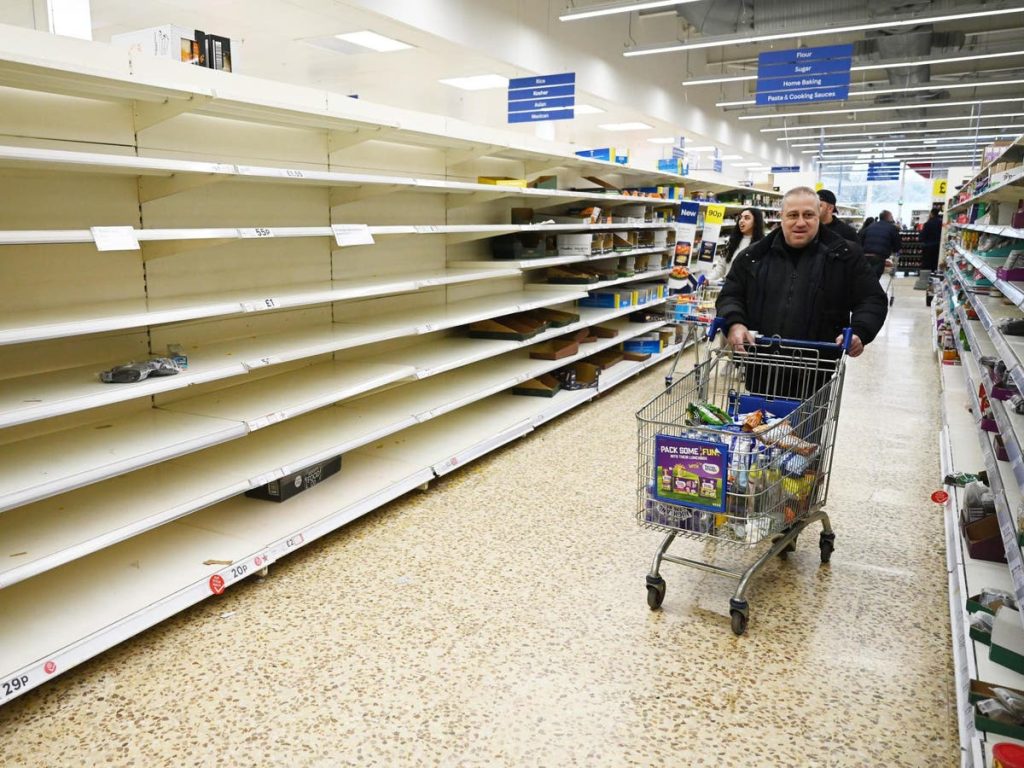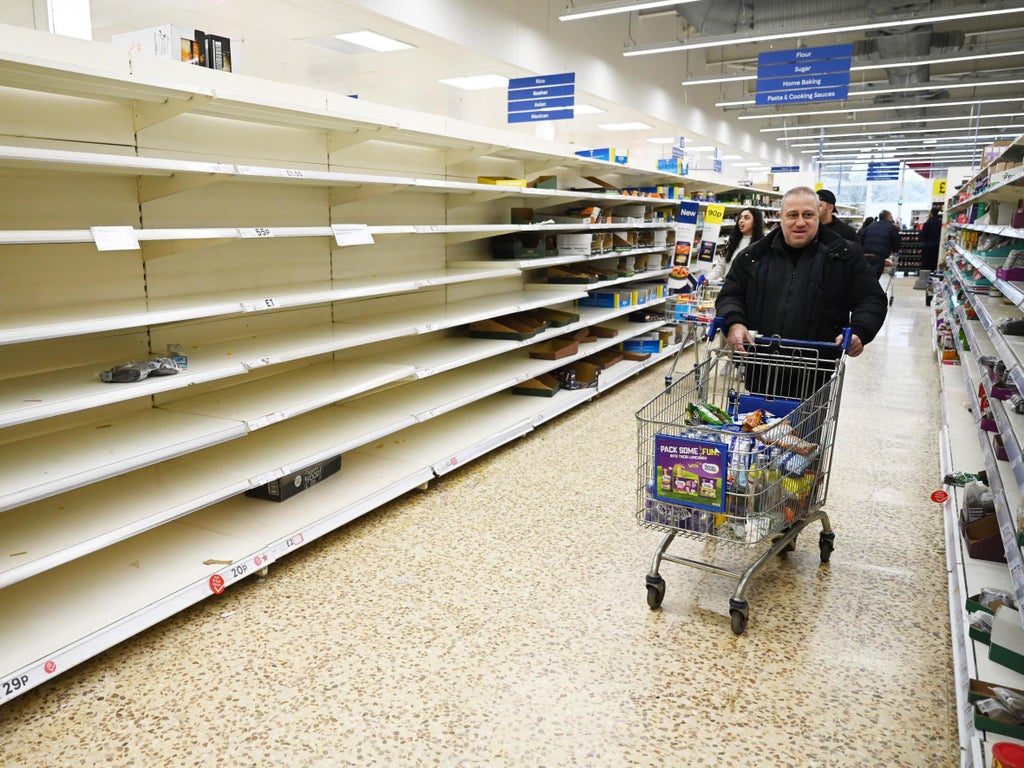Empty pasta shelves in supermarkets are a result of catastrophic wheat harvest attributed to climate change, providers have said.
Extreme dry weather has led to severe shortages in durum wheat, causing prices to soar by 90-100 per cent amid worldwide supply problems.
Droughts and record temperatures have had devastating effects on crop turnover on Canadian farms, a major producer of the key pasta ingredient.
With temperatures reaching a record 46.9C in June, farmers are now down 40-50 per cent on crop.
Heavy rain and flooding, coupled with an early spring and a dry summer in France and Italy, also reduced the quality of the durum crop this side of the Atlantic.
Jason Bull, director of Eurostar Commodities, said: “We should be under no illusion climate change is causing this.
“It’s crazy. I’ve been doing this for 17 years, but I’ve not seen this before.
“It’s because of the durum crop – pasta is made with durum wheat and the biggest exporter is Canada.
“Couple with hat the opposite effect – in Europe and France they’ve had excessive rain, so the wheat crop isn’t suitable for milling.
“So, it’s a bad situation on both sides of the Atlantic.”
Reports of vacant pasta shelves have emerged from Tesco stores in Edinburgh and Bristol, and Sainsbury’s in Birmingham and Surrey.
Empty shelves in Camberley Sainsbury’s, Surrey
(SWNS)
Depleted pasta stock has also been reported in Gait, Edinburgh
(SWNS)
Many eyebrows have been raised surrounding the growing likelihood of future shortages, with predictions showing pasta lovers may have to pay up to 50 per cent more for the beloved Italian staple.
Questions over rising prices and availability depend on the success of the next crop.
Mr Bull said: ‘If Canada and the USA continue to get dry weather an no rainfall it will affect the crops,’ Mr Bull said.
The estimated shortage of 100,000 HGV drivers in the UK has also been steered the pasta shortfall.
This comes after problems arose in fuel supply over the past few weeks, also linked to the deficit in delivery drivers, blamed on Brexit, Covid, and poor industry pay.
The government’s new scheme to offer immediate visas for 300 foreign tanker drivers to work in the UK from now until the end of March coincided with fears surrounding Christmas food shortages.
So far, only 127 drivers have applied.



